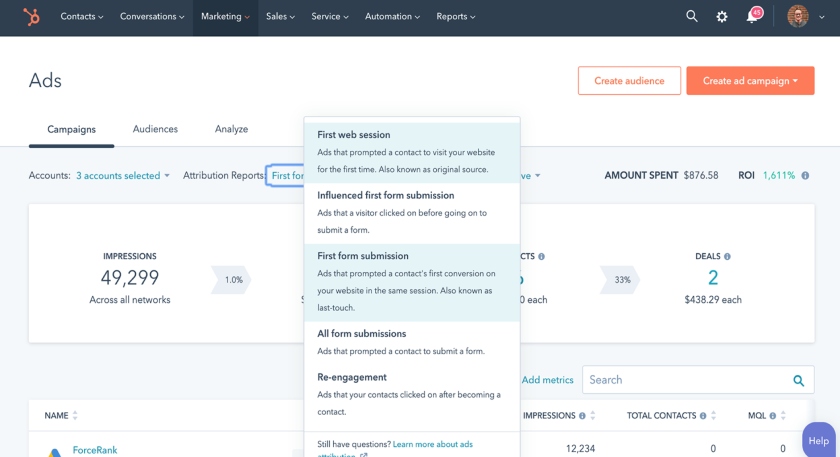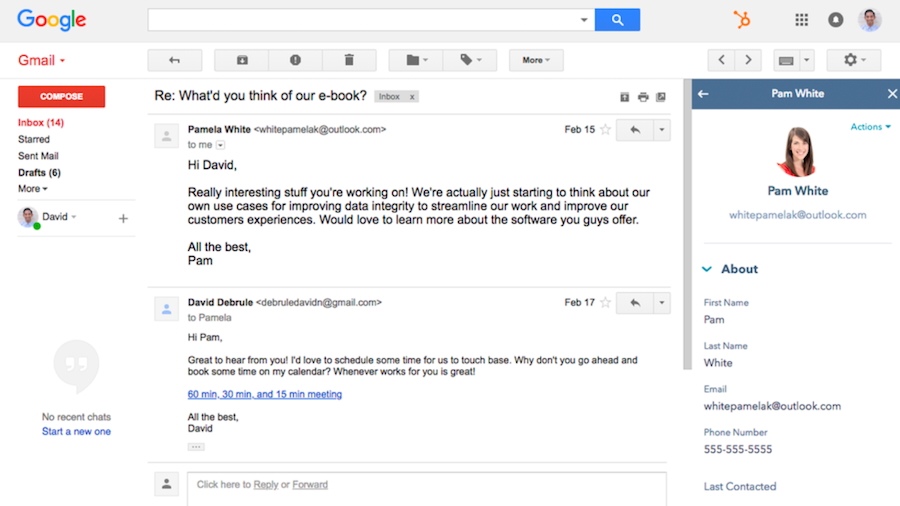Google Workspace is a popular suite of business productivity tools for emailing, storing contacts, tracking calendar events, and managing documents, spreadsheets, and slide decks. When integrated with customer relationship management (CRM) software, businesses can sync their sales data and files with those stored in Google applications.
We identified the eight best CRM for Google Workspace based on affordability, features, and user experience.
- HubSpot CRM: Overall best free CRM for Google Workspace
- Pipedrive: Best for Managing Google Drive Files
- Zoho CRM: Best for Google Sites lead generation
- Insightly CRM: Best for Google contact record management
- Streak CRM: Best for Gmail users
- Capsule CRM: Best for task and calendar management
- Copper CRM: Best Google Chrome extension
- Salesforce: Best for Google Analytics integration
Align your sales and marketing functions by leveraging HubSpot's Google integration capabilities: |

|
Best CRM for Google Workspace Compared
Provider | Free Plan | Free Trial | Starting | Our Rating out of 5 |
|---|---|---|---|---|
 | ✓ 2 users | N/A | $15 per user | 4.70 |
 | ✕ | 14 days | $14 per user | 4.63 |
 | ✓ 3 users | 15 days | $14 per user | 4.62 |
 | ✕ | 14 days | $29 per user | 4.54 |
 | ✓ 1 user | 14 days | $49 per user | 4.49 |
 | ✓ 2 users | 14 days | $18 per user | 4.44 |
 | ✕ | 14 days | $9 per user | 4.42 |
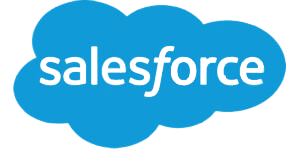 | ✕ | 30 days | $25 per user | 4.32 |
HubSpot CRM: Best Free CRM for Google Workspace

Pros
- Free plan allows seamless integration with Google Workspace apps
- You can use Gmail, manage Google Ads for marketing, and sync contact and calendar data to the CRM
- It offers a Chrome extension to access CRM records and tools in the Gmail interface
Cons
- It lacks pricing scalability and has a huge price jump from Starter ($15 per user monthly) to Professional ($1,170 per month for five users)
- The HubSpot Sales Chrome extension requires a connected calendar to schedule meetings with a meeting link
- Accessing Google Search Console data and search engine optimization (SEO) analytics requires the Professional plan at $1,170 for five users
- You want a free CRM for Google: HubSpot CRM has a free plan for unlimited users and no-cost Gmail integration. It also works with Calendar and Contacts to sync data between both systems. The Google Ads integration is even available in the free Marketing Hub. And HubSpot CRM’s freemium option includes a Chrome extension, which gives CRM access to Gmail.
- You frequently manage marketing activities: HubSpot CRM is a prime CRM Google users can use to align sales and marketing functions into one team. On the higher-tier plans for the Marketing Hub or Customer Platform, teams can manage and track Google Ads and associated audiences from the CRM. They can also sync search console and search engine optimization (SEO) data into the CRM for analysis.
- You need a more scalable CRM with Google integrations: There’s no question that HubSpot is a superior free CRM system compared with other products. The challenge is that it gets expensive to scale and update to higher tiers when users need more data capacity and advanced features. The Starter plan costs $15 per user monthly, whereas the Professional plan costs $1,170 for five users—a $1,000 price difference.
- Alternatives: Zoho CRM and Capsule CRM are our favorite CRMs for cost scalability—offering free options and affordable paid plans.
- You want to readily schedule meetings via Google Calendar using your CRM: While HubSpot has a great Chrome extension tool for accessing CRM records and tracking email activity from Gmail, users must have a connected Google Calendar to schedule with a meeting link. This can be a hassle for some users.
- Alternative: Copper CRM is a great alternative as its Chrome extension tool is accessible in Gmail and Calendar apps. This functionality is helpful for teams needing to schedule and attend meetings, track emails, and log events on the calendar for lead nurturing and marketing purposes.
HubSpot CRM Pricing Plans*
*Pricing is based on annual billing on a per-month breakdown of the HubSpot Sales Hub plans. Monthly billing and enterprise-level options are available at a higher cost. While we update pricing information regularly, we encourage our readers to check current pricing.
**Customer Platform includes sales, marketing, customer service, a content management system, and operations software. Individual modules can be purchased for lower monthly costs.
Our Expert Opinion
HubSpot CRM stands out among the rest of the providers in this list because of its extensive Google Workspace integrations. You can access the CRM from Gmail, deploy Google Ad campaigns and track their performance, and get Google Search Engine analytics on the platform to boost web traffic and lead generation efforts. Moreover, this Google CRM offers a quick and seamless integration process with Google apps.
Pipedrive: Best for Managing Google Drive Files

Pros
- Google Drive sync lets users edit and create files from inside the CRM
- Google Workspace integration includes Gmail, Meet, Calendar, Contacts, Ads, Drive, and Tasks
- It offers a Chrome extension to access Pipedrive in Gmail inbox
Cons
- It has no free plan or free Google integrations
- Some Google integrations, such as Google Ads, require a third-party connector like Zapier
- More advanced security features are locked in with the Enterprise plan ($99 per user monthly)
- You want to create and edit Google Drive files from inside Pipedrive: With Pipedrive’s Google Drive integration, you can sync files so you can edit them and create new ones from inside the CRM. This helps increase productivity by eliminating the need to edit, download, and reupload files to your database. Plus, you can link files to multiple deals or contacts.
- You want CRM connectivity with all Google apps: Relative to other CRM systems on this list, Pipedrive has some of the broadest integration capabilities for Google apps. Either through Zapier or a direct connection, users can access apps like Gmail, Meet, Calendar, Contacts, Ads, Drive, and Tasks in Pipedrive. You can even use the Google single sign-on (SSO) function to log into the CRM.
- You need to access Pipedrive in Gmail: Pipedrive offers a Chrome extension feature that gives users CRM accessibility from Google. This Google Workspace CRM allows you to add leads, log contact activity and communications, and sync information from a Google app like Gmail into the CRM database. You can also use chatbots and web forms to generate new leads.
- You need free Google integrations: Because Pipedrive has no free-forever plan, users, by default, cannot access the Google CRM integrations for free. This platform may not be a great starting Google CRM for small businesses wanting to try the features first before committing to buying the solution.
- Alternative: HubSpot CRM is our top recommendation for users looking for free integration with Google apps, such as Gmail, Calendar, Contacts, and Ads. Capsule CRM also offers free Google integrations with its free plan.
- You want direct integration with Google Ads: Pipedrive does allow connectivity with Google Ads to capture lead data from form submissions into the CRM system. This feature, however, requires a third-party connector tool like Zapier and user configuration to create those data flows.
- Alternatives: HubSpot CRM and Zoho CRM are the best alternatives for direct integration with Google Ads. This feature greatly benefits small businesses wanting to promote their products and services using Google Ads.
Pipedrive Pricing Plans*
Pipedrive Pricing Add-ons:
- Projects Project management tools; free in the Power and Enterprise plans : Starts at $6.70 per user, monthly
- Campaigns Customizable email campaigns : Starts at $13.33 per company, monthly
- LeadBooster Lead generation tool set (chatbot, live chat, prospector, web forms, and appointment scheduler) : Starts at $32.50 per company, monthly
- Smart Docs Trackable quotes, proposals, and contracts; free with Professional, Power, and Enterprise plans : Starts at $32.50 per company, monthly
- Web Visitors Web tracking and lead ranking : Starts at $41 per company, monthly
*Pricing is based on annual billing on a per-month breakdown of the plans, though monthly billing is available at a higher cost. While we update pricing information regularly, we encourage our readers to check current pricing.
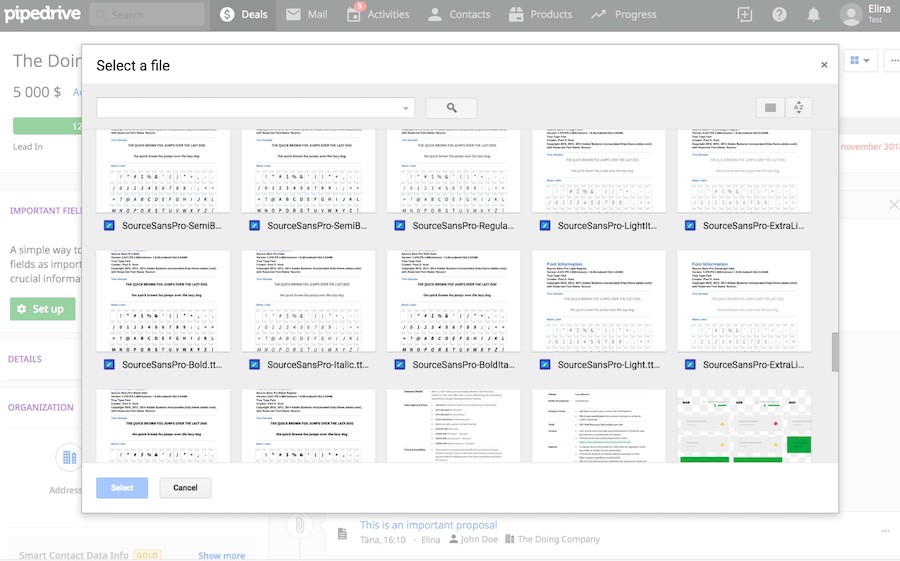
Pipedrive’s Google Drive integration allows users to create and edit files from inside the CRM. (Source: Pipedrive)
Our Expert Opinion
Pipedrive’s integration with Google Drive helps teams maximize productivity by allowing them to access, create, and edit files directly from within the CRM. You can link files to relevant deals or contacts, as well as convert Pipedrive files into Google Drive files. This platform also has the broadest Google integrations, which include Gmail, Google Meet, Calendar, Contacts, Ads, Drive, and Tasks.
Zoho CRM: Best for Generating Leads Through Google Sites

Pros
- It has Google Sites integration for generating leads through online web forms
- It can sync with Google Calendar, Tasks, Contact, and Gmail
- It has free plan for three users and cost-scalable paid plans ranging from $14 to $52 per user monthly
Cons
- Google integration is exclusive to paid plans (starting at $14 per user monthly)
- It has usability issues due to advanced capabilities and multiple modules
- Google Ads features are gated with the Professional plan ($23 per user monthly)
- You want to use Google Sites for lead generation: Zoho CRM’s web forms are perfect for Google Sites, helping Google Workspace users capture web visitor information. This capability can simplify your lead generation process because you can create contact records from form submissions on your site. You can also customize web forms and automate emails for lead nurturing and marketing purposes.
- You need broad data sync options across Google apps: Zoho CRM gives a range of connectivity with Google apps, allowing users to sync Calendar, Contacts, Drive, Gmail, and Task data between both systems. Teams can also automatically add contacts to the CRM database for Google Ads conversions while analyzing keywords that led to submissions, all in the CRM.
- You need a robust free Google integration: You can integrate Google with a CRM system for more advanced functionalities, like tracking lead data across these platforms. While Zoho CRM has a free plan, it does not allow third-party integrations, including Google apps, until the Standard plan for $14 per user monthly. Also, pricing for Zoho Mail starts at $1 per user monthly, to get your Gmail emails within Zoho CRM.
- Alternative: HubSpot CRM is our top recommendation for free direct integrations with Google apps.
- You want a more intuitive CRM interface: Zoho CRM tends to get poor user reviews for product usability, specifically for system navigation, as it has a clunky design with lots of buttons.
- Alternatives: Copper CRM is a great alternative designed specifically for Google teams with a cleaner interface and solid user experience ratings overall. We also recommend Pipedrive for its user-friendly layout and features.
Zoho CRM Pricing Plans*
*Pricing is based on annual billing on a per-month breakdown of the plans. Monthly billing is available at a higher cost. While we update pricing information regularly, we encourage our readers to check current pricing.
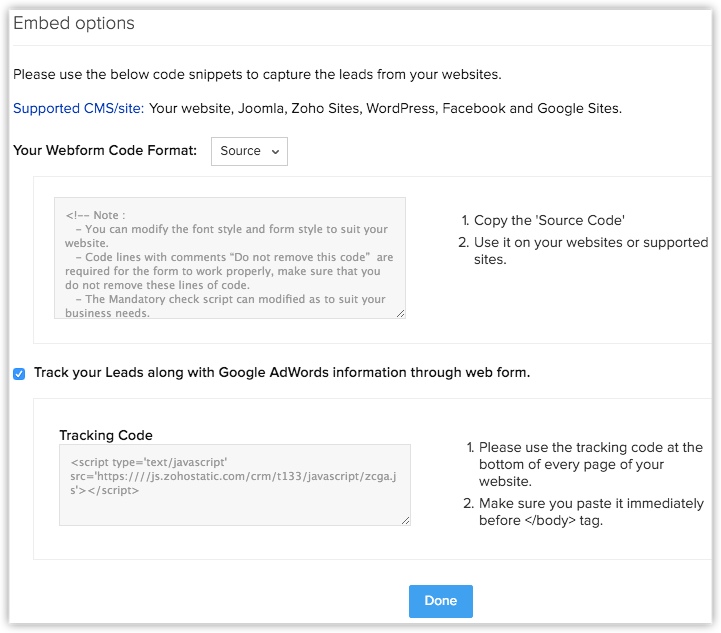
Use Zoho CRM’s web form code to embed on Google Sites. (Source: Zoho CRM)
Our Expert Opinion
Zoho CRM is our top Google CRM software because of its capability to autogenerate leads through its web forms with Google Sites and robust integrations with Google. Starting at just $14 per user monthly, it can provide data sync capabilities between the CRM and major Google apps, including Contacts, Tasks, Calendar, Gmail, and Drive.
Insightly CRM: Best for Google Contact Record Management

Pros
- Gmail sidebar allows users to access CRM records directly from Insightly
- Google Calendar displays Insightly calendar for appointment scheduling, outreach, and nurturing
- Mobile app offers CRM record management for Gmail
Cons
- It has no free plan and free Google integration
- The starting price of $29 per user, monthly is relatively expensive
- Onboarding requires a one-time fee of $1,500
- You need a Google CRM that records lead data seamlessly: With Insightly CRM, you can view your Gmail contacts or leads by clicking the sidebar icon and pointing the mouse cursor to the contact. The name of your content will appear in the sidebar’s title. Users can also navigate the other icons to see related records.
- You want to see schedules and events in your CRM on Google Calendar: With the Google Calendar feed, you can access all lead appointments and events set on Insightly CRM on your Google Calendar through a link. This way, you won’t miss important sales follow-ups, demo appointments, and related tasks. This calendar sync option is available on paid plans.
- You are seeking a free CRM with Google integration: While Insightly CRM can be integrated with Google, this feature comes at a relatively high cost of $29 per user monthly with its Plus plan. This can be a drawback for small businesses that regularly use Google and prefer a free Google CRM.
- Alternatives: HubSpot CRM’s free plan offers integration with Google Workspace apps, including Gmail and Google Ads. Capsule CRM also has a freemium option that offers integration with Gmail, Google Calendar, and Google Contacts.
- You are looking for a Google CRM with cheaper sales automation: Insightly CRM offers project and CRM automation starting in its Plus plan at $29 per user monthly. This price can be costly for startups.
- Alternatives: HubSpot CRM offers simple automation for deal tasks and notifications with its paid plans (starting at $15 per user monthly). Zoho CRM also offers workflow automation in its Standard plan at $14 per user monthly.
Insightly CRM Pricing Plans*
Insightly CRM Pricing Add-ons:
*Pricing is based on annual billing on a per-month breakdown of the plans, though monthly billing is available at a higher cost. While we update pricing information regularly, we encourage our readers to check current pricing.
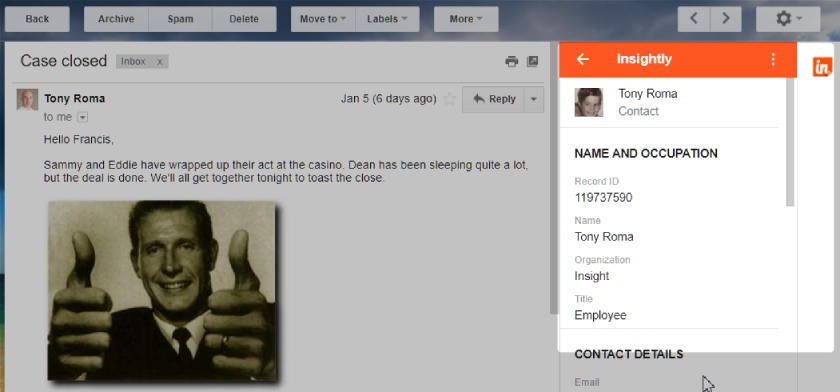
Insightly CRM sidebar in Gmail for viewing and managing CRM records from within the inbox (Source: Insightly)
Our Expert Opinion
Insightly CRM has a Gmail sidebar that allows you to view and manage your CRM contacts without leaving your inbox. The sidebar icon gives you quick access to contact details and allows you to seamlessly navigate related records. Furthermore, Insightly CRM’s Google Calendar feed is highly recommended for field sales reps, as it provides you with a quick view of all your appointments via a link to help ensure that nothing slips through the cracks.
Streak CRM: Best CRM for Gmail Users

Pros
- It has a unique format as a CRM plugged into Gmail for seamless contact management
- Sales pipelines within Gmail are customizable
- It has free and scalable paid plans, starting from $49 to $129 per user monthly
Cons
- The Pro+ plan ($69 per user, per month) is required for non-Google app integrations (like Slack and Calendly)
- Users find it difficult to get used to its interface, which is uniquely inside the Gmail inbox
- Free plan is limited to one user and email power tools only; does not include core CRM features
- You want to use your CRM in Gmail for lead management: Streak is our top recommendation for the best Gmail CRM. You can see and store contacts and manage email communications, tasks, and lead nurturing activities on one interface.
- You are a freelancer looking for a fully customizable pipeline management tool: Streak CRM is our best CRM for Gmail for its customizable features for pipeline management within Gmail. If you are a solo-operated business user, this capability lets you track sales deals, client projects, and financial activities like invoicing within Gmail.
- You want to connect with non-Google apps: If you want to connect your CRM with non-Google applications, you should look elsewhere. Streak CRM doesn’t allow other integrations until the Pro+ plan for $69 per user monthly and can only directly connect with Calendly, Slack, and Typeform. The others require Zapier connection tools.
- Alternatives: You can integrate HubSpot CRM with Outlook, Microsoft Exchange, Slack, Facebook Messenger, and third-party apps in the HubSpot App Marketplace starting with its freemium option.
Zoho CRM also offers native integration with Zoho apps (including Zoho Desk, Projects, and Campaigns) with its free plan. Paid plans (starting at $14 per user monthly) offer third-party app integrations from the Zoho CRM Marketplace.
- You prefer a traditional CRM interface: Streak CRM’s reliance on Gmail may not be ideal for users who prefer a traditional, standalone CRM interface.
- Alternatives: HubSpot CRM and Pipedrive are traditional CRMs with an intuitive interface and high usability ratings.
Streak CRM Pricing Plans*
*Pricing is based on annual billing on a per-month breakdown of the plans, though monthly billing is available at a higher cost. While we update pricing information regularly, we encourage our readers to check current pricing.
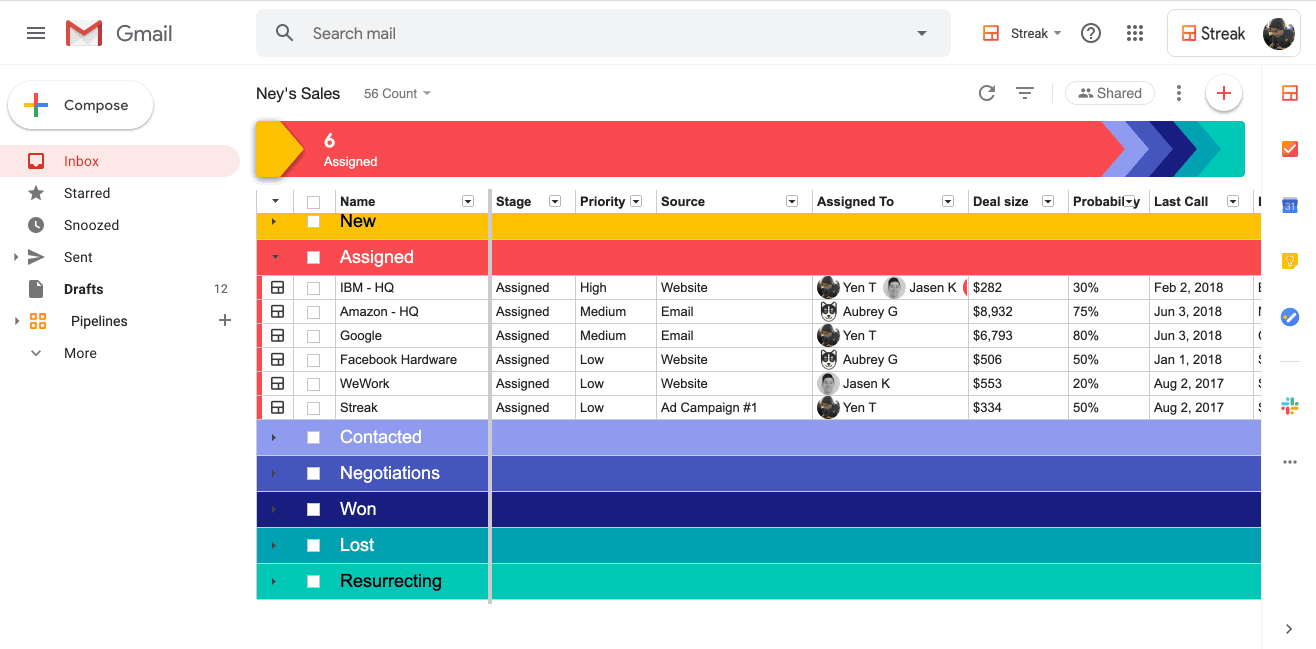
Streak CRM lets you customize sales pipelines on Gmail. (Source: Streak CRM)
Our Expert Opinion
Streak CRM is a specialized CRM for teams and businesses who want to manage their contacts, deals, tasks, and workflows from within Gmail. It’s also equipped with tools for email tracking and work collaboration, making it our best Gmail CRM. We especially like that its processes are fully customizable.
Capsule CRM: Best Google CRM for Task & Calendar Management

Pros
- All plans include Google Workspace integrations and Gmail extension
- Google Calendar integration features a calendar feed with an organized view of both CRM and Google events
- The Free plan includes an AI Content Assistant that helps craft and optimize sales emails
Cons
- Google Contacts integration is only one-way
- It has no email tracking tools
- Workflow automation features are unavailable until the Growth plan at $36 per user monthly
- You want to connect to Google Calendar for project and task management: Capsule CRM integrates well with Google Calendar across all plans, allowing you to see your sales tasks side-by-side with your Google appointments. This platform also generates a calendar feed where you can view all your tasks in Google.
- You want to leverage an AI-powered Google CRM for writing sales emails: All of Capsule’s plans, including the free tier, offer an AI Content Assistant. This tool automatically drafts sales emails from your contact records and recommends the right topic and tone for your message.
- You want a Google CRM with two-way data sync: Capsule CRM’s integration with Google Contacts is one-way, so you can only sync contacts from Capsule CRM to Google.
- You need a CRM with email tracking tools: While Capsule CRM offers basic email marketing features and templates, it does not have tools for email tracking.
- Alternative: HubSpot CRM is our overall best email marketing CRM because of its mass email and performance tracking tools that come at no cost.
Capsule CRM Pricing Plans*
*Pricing is based on annual billing on a per-month breakdown of the plans, though monthly billing is available at a higher cost. While we update pricing information regularly, we encourage our readers to check current pricing.
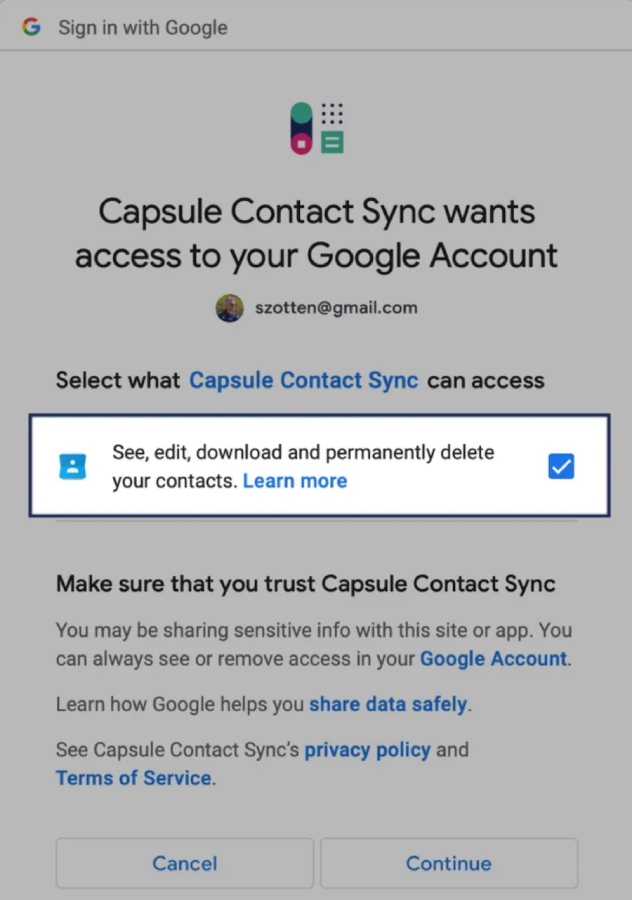
Capsule CRM’s built-in Google Contacts integration for automatic contact syncing (Source: Capsule CRM)
Our Expert Opinion
Capsule is one of the best Google CRM software because its project and task management features work well with Google Calendar for more efficient tracking of sales activities and appointments. It also offers a free integration with Google Workspace apps. Use its Gmail add-on to manage your sales pipeline and tasks from within your inbox. On top of that, all plans include an AI Content Assistant to help you compose sales emails.
Copper CRM: Best Google Chrome Extension

Pros
- Google Chrome extension allows users to access and view CRM data directly in Gmail or Calendar apps
- It is built for Google and has an interface design similar to Google apps
- It has a unique integration with Google Data Studio for generating complex reports
Cons
- It has no free plan and no free Google integrations
- Mass email is not available until the Professional plan at $59 per user monthly
- Unlimited contacts and lead scoring are not available until the Business plan at $99 per user monthly
- You need an intuitive Google Chrome extension: Copper CRM is built for Google and uses a similar clean and modern interface design. This is best expressed in its Chrome extension tool that lets users access the CRM directly in Gmail and Calendar. While other CRMs offer a similar extension or add-on, none are more intuitive than Coppers CRM’s.
- You want a true Google CRM: Copper CRM is the closest thing you’ll get to a CRM by Google. The developer intentionally created the product for Google Workspace teams, allowing broad integrations with apps like Gmail, Contacts, Calendar, Drive, Sheets, and Data Studio. Plus, you can access Copper through the Gmail and Google Calendar interfaces.
- You need free Google integrations and low-cost email sequences: Copper CRM does not offer a free plan. While its entry-level plan is not necessarily expensive at $9 per user monthly, some small teams and businesses might prefer starting with a free option before scaling up their operations.
- Alternatives: HubSpot CRM and Capsule CRM are excellent alternatives with free plans, simple interfaces, and no-cost integrations with all the available Google apps.
- You want more affordable mass email: One of the more expensive features of Copper CRM is the mass emailing tools that let you deploy marketing campaigns or conduct sales outreach on a mass scale. This capability requires the Professional plan for $59 per user, per month.
- Alternative: HubSpot CRM includes mass email capabilities with engagement tracking and templates, all on the free-forever plan. Streak CRM’s free plan also offers email power tools, such as email tracking and bulk emailing.
Copper CRM Pricing Plans*
*Pricing is based on annual billing on a per-month breakdown of the plans, though monthly billing is available at a higher cost. While we update pricing information regularly, we encourage our readers to check current pricing.
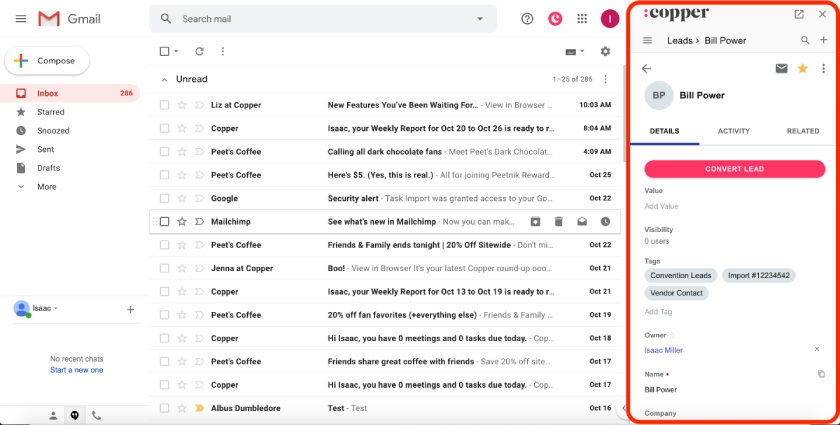
The Copper CRM Chrome extension lets you use the CRM from Gmail. (Source: Copper)
Our Expert Opinion
As one of three CRMs on this list intentionally built for Google, Copper CRM makes its mark as an intuitive product with broad Google integrations. It’s also an excellent option for teams who constantly keep their Gmail and Calendar tabs open and are specifically interested in the Chrome extension option. This tool helps you manage CRM records and access data, and it’s easy to set up and operate.
Salesforce: Best for Google Analytics Integration
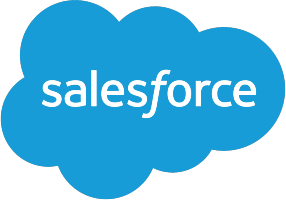
Pros
- It has a unique Analytics 360 feature (an integration with Google Analytics) for getting complete views on customer history
- Chrome extension brings Salesforce into the Gmail and Calendar interface
- Highly sophisticated platform comes with advanced analytics and AI tools
Cons
- It has no free plan; relatively expensive starting price at $25 per user monthly
- Native Google integration is limited to Gmail and Calendar; Google Analytics and Ads integrations require paid third-party apps like GA Connector ($125 per company, monthly)
- It has a steep learning curve for analytics tools
- You want to integrate with Google Analytics: One of the key capabilities of Salesforce is that users can integrate directly with the Google Analytics 360 platform. This provides teams with detailed customer insights for creating segmented audience lists and tracking every stage of the buyer journey. It also allows you to see website analytics in the Sales Cloud and evaluate organic searches.
- You need to access Salesforce in your Gmail: Salesforce, through a strategic partnership with Google, offers a “Lightning for Gmail” tool that lets users access CRM data from Gmail and Calendar. This Google CRM tool allows you to sync data and manage contacts, accounts, and opportunity records without leaving Google.
- You need an affordable Google CRM tool: Because of its advanced features and focus on boosting sales team performance, Salesforce is more expensive than most of the top small business CRM providers on this list—starting at $25 per user, per month, billed annually on the lowest plan.
- Alternative: HubSpot CRM is the most cost-friendly option, with a robust free plan that offers all main Google integrations, plus tools for managing sales, marketing, and service processes.
- You want a CRM designed specifically for Google: Salesforce is one of the most popular general-use CRM systems in the world. Therefore, while it may have partnerships with Google and accessible integrations, the tools and modules were not designed specifically for Google users.
- Alternatives: Copper CRM, Capsule CRM, and Streak CRM are three great alternatives designed to integrate with Google apps, look like Google apps, or operate within Google apps.
Salesforce Pricing Plans*
Salesforce Pricing Add-ons:
*Pricing is based on annual billing on a per-month breakdown of the plans. Monthly billing is available for the Starter Suite at a higher cost. While we update pricing information regularly, we encourage our readers to check current pricing.
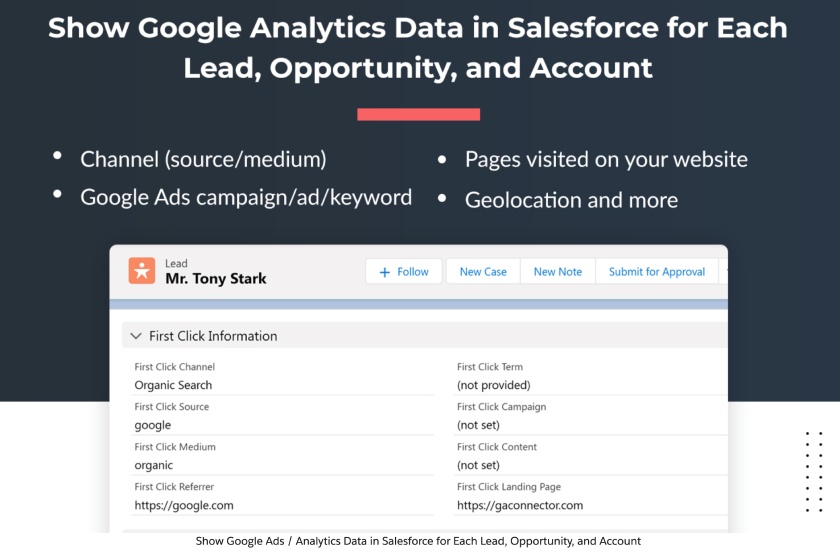
Google Analytics data in Salesforce for each lead, opportunity, and account (Source: Salesforce)
Our Expert Opinion
Salesforce maintains its reputation as a powerful automation and data analytics tool with Google integrations. Its most compelling feature is the direct connection to Google Analytics 360 to obtain advanced insights on customers, monitor their journeys, and segment audience lists. We also like how Salesforce leverages its partnership to create a solid extension tool that lets you access CRM resources in Gmail or Calendar apps.
How We Evaluated the Best CRM for Google Workspace
To determine the best CRM for Google Workspace, we evaluated each product’s capacity to integrate with Google apps like Gmail, Contacts, Calendar, Tasks, Drive, Sheets, and Ads, either directly or through a third-party connector like Zapier. We also looked at the functionality of the integration and other critical software attributes like product affordability and user experience when assessing Google CRM tools for small businesses.
Check out our evaluation process for the best Google CRMs.
25% of Overall Score
Because many CRMs include Google capabilities, like using Gmail from the CRM and two-way data sync, we first elevated general features vital to any CRM. These features included reporting and analytics tools, mobile applications, and third-party integrations. We also wanted plenty of customization options for teams to tailor their system to their needs.
20% of Overall Score
These criteria looked specifically into Google’s features of the best Google CRM software. We also looked at whether an extension was available for using the CRM in Google apps and wanted to see how much functionality the Google apps provided once connected. For instance, some CRMs could sync lead data from Google Ads campaigns, while others could manage entire campaigns.
15% of Overall Score
When choosing a CRM system for Google Workspace or any other use case, pricing is a major consideration. Cost-friendly and scalable plans and free-plan availability are crucial for this criteria. Additionally, each CRM should offer flexible monthly or annual billing options and include Google-specific features on the lower-tiered plans.
15% of Overall Score
To assess the ease of use of the best CRM for Google Workspace, we checked if the provider has built-in templates or automation. We also searched reputable review sites to gauge general user sentiment regarding its learning curve and ease of setup. In addition, we considered its plan options to see if it was easily scalable. Most importantly, we determined if the Google CRM tools were easy to use, especially for beginners.
15% of Overall Score
Extensive user support helps prevent poor experiences while operating Google CRM software. So we evaluated service hours and channel availability via phone, live chat, and email. We also wanted providers to offer self-service resources like product tutorials, community forums, or training modules.
10% of Overall Score
We factored in our firsthand experience with each Google CRM to assess the quality of its features and its value for money. We also evaluated what actual users say about the product’s features through online reviews. Moreover, we considered how easy or difficult it was to research or look for information about the provider.
Key Features to Look for When Choosing a Google CRM
If you’re still unsure which provider is best for your team’s unique business needs, just keep in mind that certain features are nonnegotiable in a Google CRM. In addition to the criteria enumerated in the previous section, we have expounded on some key features and capabilities you should look for when choosing a Google CRM.
Google Workspace Integration
Make sure that your CRM offers seamless integration with key Google Workspace apps, such as Gmail, Google Calendar, Contacts, and Drive. Providers like Streak CRM help you save time by allowing you to access your CRM directly from your Gmail inbox and easily track email communications. Other capabilities to look out for include Google Contacts and Calendar sync, which automatically reflect changes in calendar events or records across all platforms.
User Experience
Choose a CRM that has a simple and intuitive interface so that all users learn, navigate, and use the platform with ease. Some providers like Copper CRM have an interface that is similar to Google apps, making it easier for users to adapt to it. To get insights from real users of a CRM, read user reviews from top sites like G2 and Capterra.
Cost-effectiveness
Look for a provider that offers plans to easily scale to adapt to your growing business needs and has a good balance between affordability and features. You can also take advantage of some providers’ discounts or waived subscription fees for startups.
Sales Automation & Reporting
A CRM with excellent sales automation capabilities allows you to streamline your sales, lead management, and lead tracking processes. In addition, strong reporting and analytics features allow you to extract meaningful insights from your CRM and Google Analytics, and then create interactive dashboards to easily track sales metrics.
Frequently Asked Questions (FAQs)
No, Google does not have a native CRM system to oversee sales. However, Google Workspace apps integrate with the most popular CRM systems, so users can access and sync Google data. Certain CRM apps like Streak and Copper CRM are specially designed for Google teams.
The best CRM for Google Workspace depends on your business and feature needs. For instance, HubSpot is your best option if you’re looking for free all-in-one Google CRM, while Zoho CRM is recommended for Google Sites lead integration. If you’re looking for a CRM that’s designed for Google Workspace users, we recommend Streak CRM, Capsule CRM, and Copper CRM.
Yes. You can use Google Sheets as a basic CRM system to store and track customer data, like contact information and company names. You can also use it to visualize sales data and track your sales funnel. However, using Google as a CRM is limited only to the features of Google Sheets.
Bottom Line
Google CRMs integrate with Google Workspace apps to expand functionalities and sync data. Google doesn’t have its own CRM software, so you can integrate its apps with many popular CRMs to get similar capabilities and access certain CRMs through Google interfaces. While HubSpot CRM scored highest because of its robust free plan, other products could be better for your business depending on the features you need and your budget.
